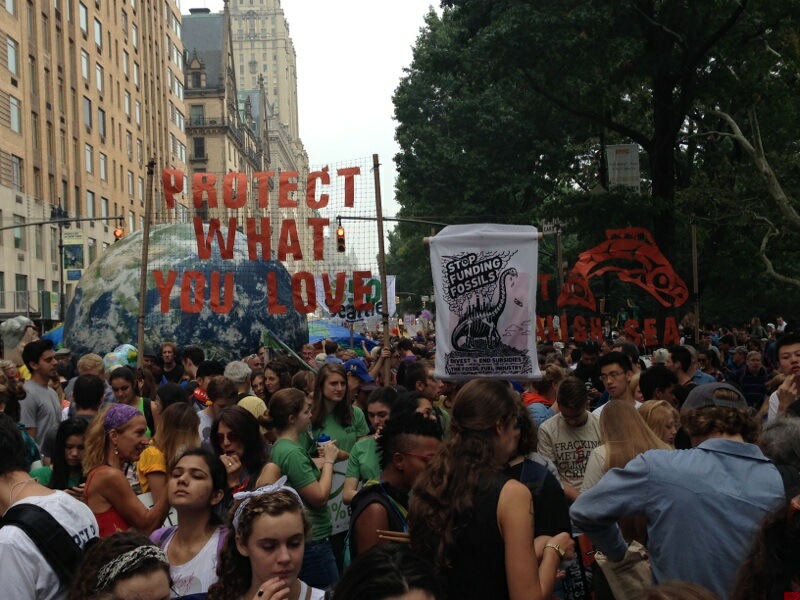By Seren Jones
Assistant Copy Editor, Staff Writer
On Tuesday, Sept. 23, more than 120 heads of state gathered at the United Nations Headquarters in New York City — convened by UN Secretary General Ban Ki-moon — for a historic summit on climate change.
To raise awareness on the topic, the People’s Climate March was held on Sunday, Sept. 21, and consisted of more than 2,700 events in 166 different countries. Among the 400,000 participants in the NYC march was a group of 13 LIU Post students, including members of the women’s swim team and women’s soccer team, who were willing to show their support and appreciation in the largest climate march held in history.

Professors Scott Carlin from the Earth and Environmental Science department and Jennifer Brown from the Sociology and Anthropology department organized the event.
1,400 organizations supported the monumental rally, including non-governmental organizations, labor unions, grassroots networks, churches, faith organizations, as well as over 300 colleges with student marchers coming from as far away as Minnesota and Kansas.
The march was a two to three mile stretch through Manhattan; from Columbus Circle east along 59th Street, down 6th Avenue, and finally finishing west along 42nd Street to 11th Avenue, outside of the UN Headquarters.
“As a person who is not involved in marches or protests, I was captured by the overwhelming amount of energy,” admitted Kat Kazaba, a junior Public Relations major. “It was inspiring to see so many people express their passion for such a timely issue. I hope we see changes stem from this historical event.”
“It was cool to be part of such a big event,” said Jacqueline Tonn, a freshmen Nutrition major. “Especially since it was the first one, and that it was taking place all over the world.”
Professor Scott Carlin explained the significance of the event and the students’ participation. “I think attending events like this can be very inspiring for students. Scientists have expressed concerns about the threat of climate change for decades. We have a very good understanding of the science and the economic, humanitarian, and ecological threats associated with climate change.” Carlin added, “There are a variety of recommended policies that are excellent tools for tackling these problems. What we still need is the political leadership to implement effective policies, such as investments in renewable energy.”
Professor Jennifer Brown was delighted with the group of students who decided to attend the event. “The People’s Climate March was an excellent opportunity for students to participate in a democratic action that has [the] potential to sway US and world leaders to take real steps toward reducing carbon emissions and protecting vulnerable populations.” Brown added, “I thought the march would be a wonderful way for my students to witness and participate in the environmental justice movement. The students who did attend were able to see a wonderfully diverse march with people talking about a variety of issues.”
Brown hopes that the students have taken something away from the experience, and that it has changed their views on global warming. “The People’s Climate March, the UN Climate Change Summit, and other recent climate change events have hopefully sparked conversations in families and communities about our individual roles in environmental destruction.”
After the meeting at the UN Headquarters, world leaders are expected to come to an international consensus on climate change and emission restrictions, which is set to be signed in Paris, France in 2015.



Be First to Comment